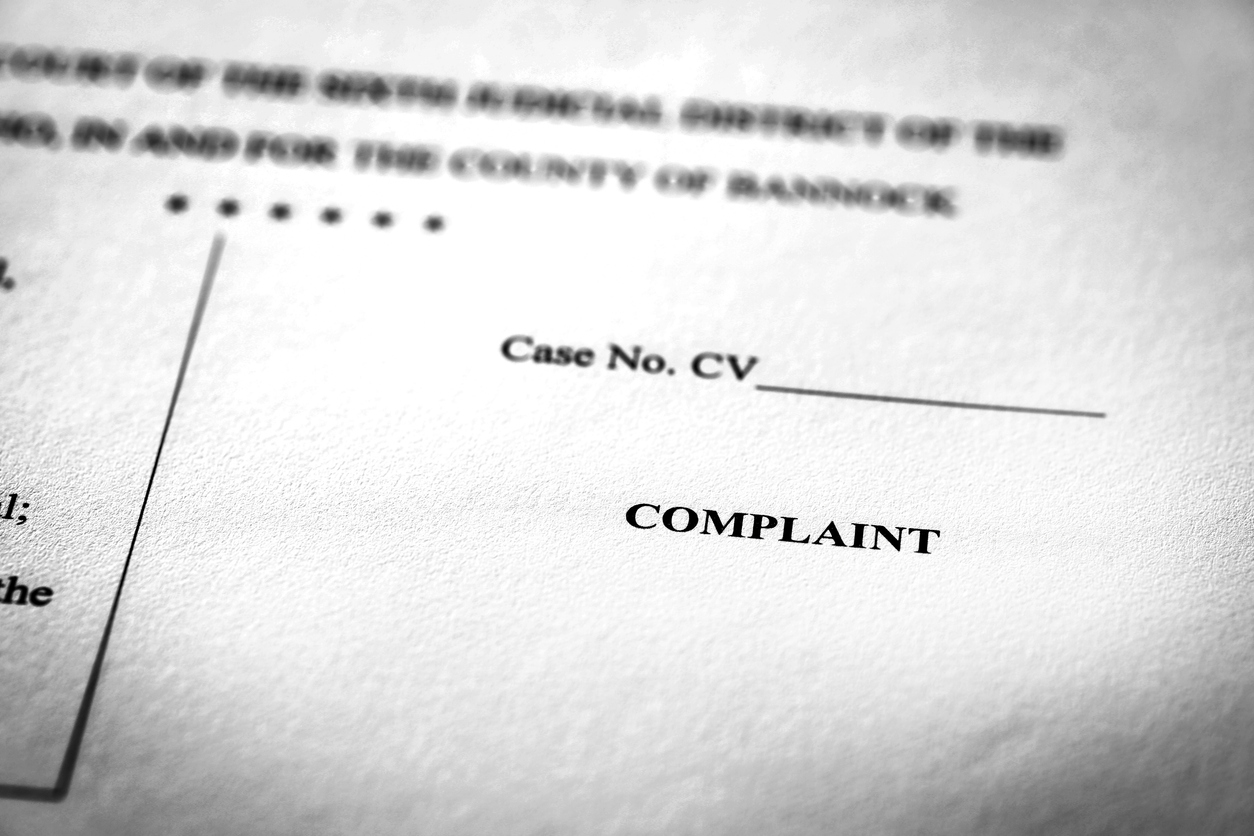Two prior posts, “What is a Supplemental Claim? Is There an Accepted Insurance Industry Definition and Meaning to the Term?” and “Why Do Roofers and Insurance Restoration Companies Submit Supplemental Insurance Claims?” provide the background for today’s topic. My insurance restoration construction friends claim that they need to be able to submit supplemental claims. The fact that some claims organizations have dedicated and trained staff to handle “supplementals” is evidence that there is a place and need for consideration of these expenses and claim costs. On the other hand, insurers, their lobbyists, attorneys and even my public adjuster friends have concerns and question the legality of many actions associated with supplemental claims, and especially supplemental claims companies.
The primary concerns can be categorized as follows:
- Inflated costs and excessive payouts.Insurance companies worry that supplemental claims are used to improperly inflate repair costs beyond what is actually needed to restore the property to pre-loss condition. Contractors may submit supplements with exaggerated prices for labor and materials or include unnecessary work in order to increase the total claim payout. The insurance industry claims that this drives up losses for insurers and can lead to higher premiums for policyholders. One insurance company attorney told me that is simply Xactimate software gamesmanship—”They’re simply professional Xactimate writers brought in after a roof is done to try to squeeze more money out of the insurance company. They don’t care whether it is a real supplement for additional work performed, but just add various line items to get the estimated total loss increased.”
- Lack of transparency and delayed resolution. When contractors or their supplemental claims companies submit supplemental claims long after the initial damage estimate, it makes it difficult for insurers to investigate and verify the additional claimed damages. Insurers may not have a clear idea of the total claim amount for many months, complicating the settlement process and delaying final resolution. Policyholders may also be confused about their total recoverable benefits when the claim keeps changing. The lack of transparency extends to claims by company adjusters that some supplemental claims companies have their employees pretend to be the contractor or the contractor’s employee.
- Unethical or fraudulent practices. Some supplementing companies may engage in questionable tactics to maximize claim payouts, such as intentionally leaving items off the initial estimate or even causing additional damage during repairs. Insurers have to be vigilant for potential insurance fraud when dealing with certain contractors or supplemental claims companies who abuse the supplementing process for financial gain.
- Inadequate documentation and proof of loss. Insurers expect supplemental claims to include clear documentation, photos, and itemized invoices justifying the additional claimed amounts. However, some supplements provide insufficient evidence of the extra damages, making it hard for insurers to evaluate whether the charges are warranted. This lack of proof leads to delays, denials, and disputes over supplemental payments.
- Administrative burden and higher costs. The supplemental claims process creates extra paperwork and logistical challenges for insurers since adjusters have to make multiple visits and estimates per claim. This increases the administrative costs for insurance companies to process claims. It can also be frustrating for policyholders dealing with a prolonged claims process. Lobbyists for Florida’s insurance carriers complained that these delays ruin the ability of insurers to provide meaningful actuarial data to reinsurance companies. This led to the current timelines for the submittal of “supplemental claims,” which is unique to Florida insurance law.
- Disputes over policy interpretation. There may be disagreements between contractors and insurers over what supplemental charges are actually covered under the policy terms. For example, whether code upgrade costs or overhead/profit should be included in the supplement. These coverage disputes can lead to litigation, adding more expense and delays to resolving the claim. When supplemental claims consultants raise these issues with the insurer, insurance company attorneys accuse them of practicing law and threaten litigation or appraisal to obtain a settlement.
The Unauthorized Practice of Public Adjusting
These concerns are routinely and legitimately raised by my public adjuster friends and colleagues. Based on my analysis, there are indications that some supplemental claims companies may be violating Unauthorized Practice of Public Adjusting (UPPA) laws in certain states by negotiating with insurers and advocating for higher claim payouts without the proper licensing.
UPPA laws prohibit anyone from acting as a public adjuster or advertising public adjusting services without the required state license. The role of a public adjuster includes appraising damages, preparing claim documentation, and negotiating claim settlements on behalf of policyholders.
Some supplemental claims companies appear to be crossing the line into public adjusting by discussing policy coverages with adjusters, disputing denials, and arguing for larger payouts, even though they are not licensed as public adjusters. Legally, under many state laws, they should only document the scope and price of damage and justify their own invoice.
Everyone in the insurance claims business should note that several states like Florida, Texas, and Oregon have recently expanded their UPPA laws to apply to anyone assisting with an insurance claim, not just those explicitly using the title “public adjuster.” This means contractors, consultants, and third-party supplementing services are at greater risk of UPPA violations. For example, a Raizner Slania blog last month, What is UPPA? The Unauthorized Practice of Public Adjusting Laws Explained, noted the following:
In 2019, the Texas House passed an expanded prohibition against UPPA via HB2103, which went into effect on September 1, 2019. These laws prohibit anyone in the state from practicing public adjusting or advertising themselves as a public adjuster unless they meet certain requirements for licensure under the Texas Insurance Code. These include:
• Providing services for compensation on a claim for payment of property damage;
• Receiving fees for services rendered in connection with an insurance claim; and/or
• Representing himself or herself as being able to provide services that constitute adjusting insurance claims.
The Raizner Slania post highlights that it is illegal for anybody other than an attorney or public adjuster to “investigate, appraise, evaluate, or advocate on behalf of a claimant when adjusting a claim.” This legal statement is true in many states which license public adjusting. So, when supplemental claims companies like CSS advertise the following:
Imagine having a team of over 20 experts at your disposal, each armed with the knowledge and speed to navigate the intricacies of insurance claims.
CSS has cultivated preferred status with major insurance carriers. As your advocate, we make sure your claims are evaluated fairly to get you maximum reimbursements.
One has to wonder whether supplemental claims companies and individuals acting within them could be violating Texas UPPA laws, which were amended in 2019 and the laws of other states.
While supplemental claims are becoming a more normal part of the property insurance claim process, there is a legitimate concern that some supplementing companies seem to be overstepping their role and engaging in unlicensed public adjusting. This can create legal risks for contractors, complications for policyholders and possible criminal or civil consequences for supplemental claims estimating companies, their employees and owners. While contractors have every right and are needed to explain their pricing and estimates to insurance company adjusters, contractors doing in-house supplemental claims need to be cautious not to cross the line into acting as de facto public adjusters. This is doubly true for supplemental claims companies, who also need to be cautious that their promises in advertising are not an exhibit that will used against them in civil or criminal proceedings.
Still, many insurance restoration contractors see “supplemental claims” as completely legitimate and necessary in today’s claims climate. An article last month in Roofing Contractor, Built Strong Exteriors Finds Success with Insurance Supplements, highlighted how a Minneapolis-based company has a department dedicated to making supplemental insurance claims. Portions of the owners’ interview include the following:
Would you explain what “supplementing” means in insurance parlance?
MM: These big insurance companies are a business; like any business, they’re trying to cut costs any way they can. Between that and having unknowledgeable adjusters in the field, we’ll get a statement of loss back, and we’ll find out that the insurance company had an adjuster from Texas looking at a roof in Minnesota. He doesn’t understand how much snow we get and that we need all these different code components. Our job is to ensure that insurance is cut for the items needed to do the work.
…
What top tips could you offer roofers considering supplements as a revenue stream?
MM: For me, it’s about offering the “silver platter.” You need to have the supplement in order: all the documents, all the building codes, all the tech bulletins [together] so you can just hand it off to the adjuster, and they don’t have to search for anything. Don’t give them a reason to say “no” is the way we try to go about it.
RM: The three things I would recommend are:
Read through your file thoroughly before you start. You get a lot of information from that and know kind of what you’re looking at before you start it.
Start making notes on those key things that you’re finding.
Communicate very well with your own team, because you’ll need them, and the homeowner – because they need you.
RC: Any other thoughts about supplementing insurance?
RM: I would like to just say if there’s a construction company or restoration company wondering if this is something they would want to do, it’s completely another income stream for your business and you’re already out there doing the work. So why wouldn’t you review what insurance has approved and make sure for the homeowner that the home is repaired to code, and the damages have been appropriately assessed? You’re creating lasting relationships with the homeowners. You’re helping them navigate through a pretty stressful process, and many homeowners do not know how or what to do with what insurance tells them….
When I researched terms involving property supplemental claims on LinkedIn, I was surprised by the number of company and independent adjusters listing this as part of their career experience. It is obvious that insurance companies recognize that these claims are or could be completely legitimate and that money is owed. The practice is so accepted that the property claims industry is analyzing supplemental processes and training specialists to adjust claims now known as “supplemental claims.” I do not see these property insurance claims processed in this manner going away despite the recited concerns noted above. I am surprised that more has not been written on the topic, which is why I tackled this elephant in the room subject in these recent posts.
Thought For The Day
Anyone who stops learning is old, whether at twenty or eighty. Anyone who keeps learning stays young. The greatest thing in life is to keep your mind young.
—Henry Ford




